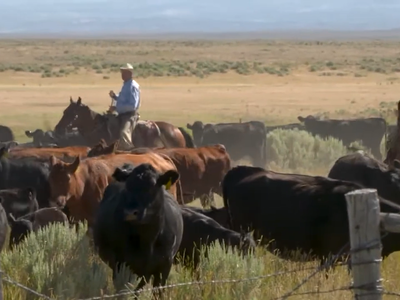Biofuels on the Front Burner
Biofuels on the Front Burner. I’m Greg Martin with today’s Line On Agriculture.
President Obama yesterday announced that the U.S. Departments of Agriculture, Energy and Navy will invest up to $510 million during the next three years in partnership with the private sector to produce advanced drop-in aviation and marine biofuels to power military and commercial transportation. Dan Utech, Deputy Director for Energy Policy at the White House Domestic Policy Council along with Ag Secretary Tom Vilsack, Secretary of Energy Steven Chu and Secretary of the Navy Ray Mabus made the announcement.
UTECH: In March, President Obama outline a plan for American energy security. That plans set an ambitious goal of reducing our oil imports by one third by 2025 and outlined a strategy for getting there. A key component of that strategy is increased use of biofuels. That means traditional biofuels like ethanol but also next generation biofuels that can be produced from a range of feedstocks and can serve as drop in substitutes for fuels like jet fuel and marine fuel.
Secretary Vilsack says the Departments of Navy, Ag and Energy are partnering with private industries to further these goals.
VILSACK: To construct and to retrofit a number of domestic and commercial and pre-commercial scale advanced drop-in biofuel plants and refineries. Each of which will have the following characteristics. The capacity and capability to produce ready drop-in replacement advanced biofuels which will meet military specifications at a price that is competitive with petroleum.
He says that these plants must be located where there is ready market access and must not impact the supply of food. Secretary of the Navy Ray Mabus says the military sees fuel as a matter of national security.
MABUS: Having energy independence for the United States is one of the most important things that we can do from a military standpoint. From a strategic standpoint we buy too much fuel from potentially or actually volatile places on earth. The price shock, the supply shocks simply are unacceptable for a military organization to sustain. For every dollar the price of a barrel of oil goes up it costs the United States Navy over $30-million in additional fuel costs.
The biofuels initiative is being steered by the White House Biofuels Interagency Work Group and Rural Council, both of which are enabling greater cross-agency collaboration to strengthen rural America. We’ll look at this more tomorrow.
That’s today’s Line On Agriculture. I’m Greg Martin on the Ag Information Network.

















